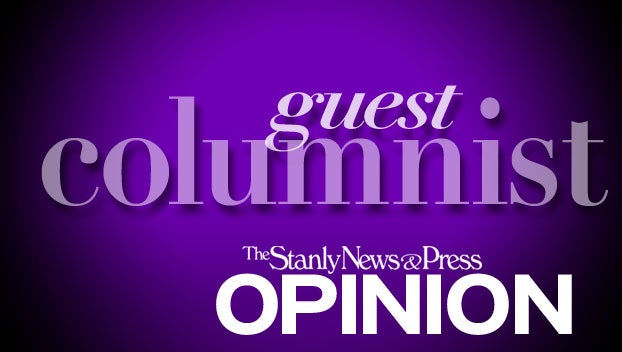JOHN HOOD COLUMN: Electoral outcomes aren’t inevitable
Published 11:38 am Wednesday, July 14, 2021
|
Getting your Trinity Audio player ready...
|
Will North Carolina Republicans have smashing victories in the 2022 midterms? Many politicos are acting as if they will, and it isn’t hard to understand why.

John Hood
Since the advent of the modern party system, the party controlling the presidency has almost always suffered losses in midterm elections. The party tends to lose seats in the U.S. Senate and House. It tends to lose governorships and other state offices.
The anti-White House wave typically reaches legislative and local races, as well. Since 1970, the president’s party has lost an average of 13 seats in the North Carolina General Assembly in the midterms. If something like that happened in 2022, the Republicans would likely reclaim supermajorities in both legislative chambers. There are also two seats up for North Carolina Supreme Court. If the GOP picks up just one of them, it would reclaim a majority there, as well.
You can tell that Republicans are feeling optimistic about 2022, and that Democrats are pessimistic. You can hear it in legislative debates about the state budget and other issues. Although Democratic Gov. Roy Cooper was reelected last year, his margin of victory proved to be modest. His political capital is rapidly diminishing.
You can also see it in progressives’ current panic about the long-running Leandro school-funding case, where they thought they’d finally got themselves into a position to enact their preferred education policies by judicial fiat. They are now recognizing that any penalties their pet judge attempts to impose on state legislators to enforce this power grab will likely be appealed to a high court more defensive of the legislature’s constitutional powers to levy and appropriate state revenue.
To both partisan camps, and to North Carolinians who aren’t yet focused on the politics of 2022 (bless them!), I offer these four words: don’t jump to conclusions.
Political patterns exhibit probabilities, yes, but not certainties. The past few years, in particular, should have disabused anyone of the notion that electoral outcomes are perfectly predictable. Donald Trump surprised most pundits (including me) by drawing the political equivalent of an inside straight in 2016 and winning the presidency despite losing the popular vote by a significant margin.
In 2018, GOP lost the U.S. House but did better than expected in Senate races. In 2020, Joe Biden’s victory matched the conventional wisdom but his margins were small in key states, while Republicans surprisingly gained House seats and then surprisingly lost the U.S. Senate in Georgia by blowing two runoff elections.
It isn’t just the case that political polling produces noisy signals, although that has always been the case and recent events should discipline us to remember that. It is also the case that America’s political coalitions are continuing to change in subtle and unpredictable ways.
For example, when Republicans became truly competitive in North Carolina politics during the 1970s and 1980s, much of their gains occurred in urban counties such as Mecklenburg, Guilford and Wake. Yellow-dog Democrats still often prevailed in rural areas. Over the subsequent three decades, that dynamic changed. Republicans came to dominate rural counties, except in places where African-Americans formed a significant chunk of the population. At the same time, Republicans lost ground in core urban counties, retaining their majorities in fast-growing suburbs but sometimes with smaller margins.
Will the GOP snap back to judicial majorities and legislative supermajorities in 2022? That will depend not simply on statistical probabilities but on key decisions that both parties are making right now. If Democrats continue their flirtation with extreme positions on policing, public disorder and a “woke” curriculum for public schools, their candidates will pay for it. Similarly, if Republicans recruit candidates more interested in “owning the libs” and indulging conspiracy theories about the 2020 elections than governing the state, that will limit their potential gains.
The current legislative maps, while Republican-drawn, are not so skewed as to preordain the outcome. It will come down to candidate recruitment, fundraising and messaging. Basic blocking and tackling. Nothing is inevitable.
John Hood is a John Locke Foundation board member and author.



